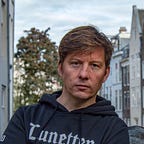JADS CLLQM Jan 11th: Spillover Effects in Experimentation
Donald P. Green is a political scientist and quantitative methodologist at Columbia University. Prior to joining the Columbia faculty in 2011, he taught at Yale University, where he directed the Institution for Social and Policy Studies from 1996 to 2011.
Professor Green’s primary research interests lie in the development of statistical methods for field experiments and their application to American voting behavior.
About the CLLQM talk
Non JADS staff can register here (limited seats).
Bogotá intensified state presence to make high-crime streets safer. We show that spillovers outweighed direct effects on security.
We randomly assigned 1,919 “hot spot” streets to eight months of doubled policing, increased municipal services, both, or neither. Spillovers in dense networks cause “fuzzy clustering,” and we show valid hypothesis testing requires randomization inference.
State presence improved security on hot spots. But data from all streets suggest that intensive policing pushed property crime around the corner, with ambiguous impacts on violent crime.
Municipal services had positive but imprecise spillovers. These results contrast with prior studies concluding policing has positive spillovers.
See paper here:
